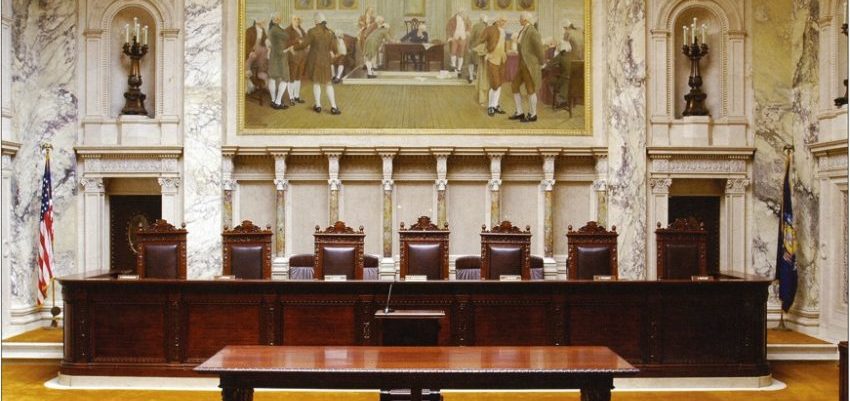
As Dan O’Donnell notes, Supreme Court Justice Brian Hagedorn and the Court’s three liberals willfully ignored the Wisconsin Constitution in rejecting President Trump’s election appeal.
December 4, 2020
Guest perspective by Dan O’Donnell
It should come as no surprise that a presidential election run by officials who completely ignored Wisconsin law would wind up before a Supreme Court that completely ignored the Wisconsin Constitution.
In a laughably argued concurrence, alleged conservative Justice Brian Hagedorn joined the Court’s three liberals in refusing to hear President Trump’s challenge of the state’s election results. Perhaps wisely, Justices Ann Walsh Bradley, Rebecca Dallet, and Jill Karofksy did not even attempt to justify their decision, but Hagedorn argued that Wisconsin Statute § 9.01 prevented the Court from taking the case without it first having been brought before a circuit court.
“I understand the impulse to immediately address the legal questions presented by this petition to ensure the recently completed election was conducted in accordance with the law,” he wrote, apparently anticipating public disbelief that he could possibly punt on such an important topic. “But challenges to election results are also governed by law.”
They are indeed, but that law needs to be properly interpreted. Hagedorn failed to do this.
“All parties seem to agree that Wis. Stat. § 9.01 (2017–18)1 constitutes the ‘exclusive judicial remedy’ applicable to this claim,” he noted. “After all, that is what the statute says. This section provides that these actions should be filed in the circuit court, and spells out detailed procedures for ensuring their orderly and swift disposition. Following this law is not disregarding our duty, as some of my colleagues suggest. It is following the law.”
No, it’s not. It’s ignoring the most important law in the state; the Wisconsin Constitution. Hagedorn’s belief that Wis. Stat. § 9.01 does not allow the Supreme Court to have what’s known as “original jurisdiction” over a matter as pressing and as significant as a statewide election would put the statute in direct conflict with Article VII, Section 3 of the Wisconsin Constitution.
“The Supreme Court has appellate jurisdiction over all courts and may hear original actions and proceedings,” the section provides, making clear that Hagedorn’s interpretation of Wis. Stat. § 9.01 is a legal impossibility.
If, as Hagedorn suggests, first bringing the case before a circuit court is the “exclusive judicial remedy” available to the Trump campaign, then Wis. Stat. § 9.01 violates Article VII, Section 3’s plain language that the Supreme Court “may hear original actions and proceedings.”
Clearly, as Justice Rebecca Bradley noted in her dissent, the statute “does not foreclose the candidate’s option to ask this court to grant his petition for an original action. Any contrary reading would render the law in conflict with the constitution and therefore void.”
So dreadful is Hagedorn’s opinion that following it would actually invalidate the statute he cites!
It also ignores the precise reason the Wisconsin Constitution grants the Supreme Court original jurisdiction in the first place: To rule on issues that are both of statewide significance and too-time sensitive to go through the appellate process.
Since federal law dictates that the United States Electoral College must “meet and give their votes on the first Monday after the second Wednesday in December,” the Trump campaign’s lawsuit must be resolved by December 14th so that Wisconsin’s electors can cast their votes.
If ever a case necessitated the Supreme Court’s invocation of original jurisdiction, it is this one. The Trump campaign is alleging that Wisconsin’s election was held in direct violation of multiple state statutes, and this challenge must be satisfactorily and definitively answered in a matter of days lest the 2020 election in Wisconsin forever have a cloud of illegitimacy hanging over it.
As the Wisconsin Supreme Court held in State v. Conness in 1900, “purity and integrity of elections is a matter of such prime importance and affects so many important interests that the courts ought never to hesitate, when the opportunity is offered, to test them by the strictest legal standards.”
Hagedorn hesitated, and as a result, these important issues may well go undecided and, as a result, the purity and integrity of Wisconsin’s elections might never again be assumed.
